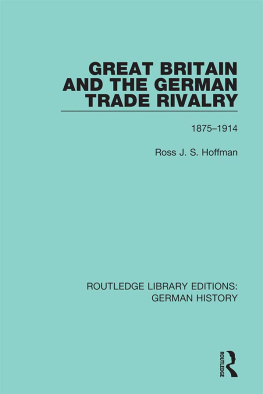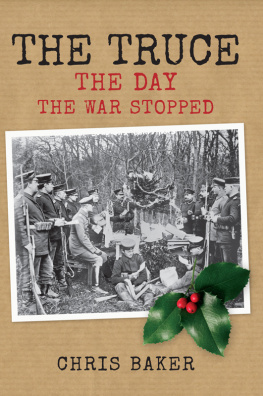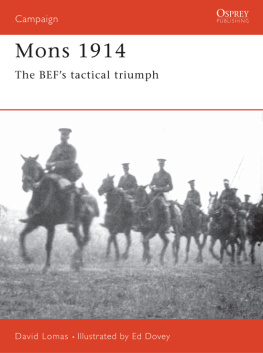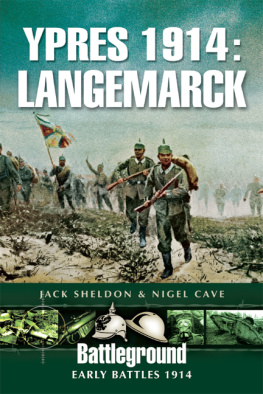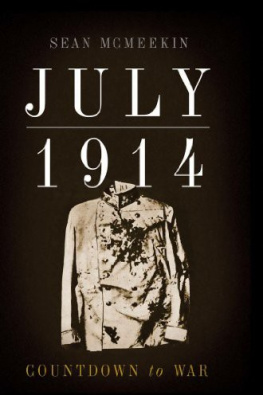ROUTLEDGE LIBRARY EDITIONS: THE FIRST WORLD WAR
Volume 10
THE SCAREMONGERS
THE SCAREMONGERS
The Advocacy of War and Rearmament 18961914
A. J. A. MORRIS
First published in 1984
This edition first published in 2014
by Routledge
2 Park Square, Milton Park, Abingdon, Oxon, OX14 4RN
and by Routledge
711 Third Avenue, New York, NY 10017
Routledge is an imprint of the Taylor & Francis Group, an informa business
1984 A. J. A. Morris
All rights reserved. No part of this book may be reprinted or reproduced or utilised in any form or by any electronic, mechanical, or other means, now known or hereafter invented, including photocopying and recording, or in any information storage or retrieval system, without permission in writing from the publishers.
Trademark notice: Product or corporate names may be trademarks or registered trademarks, and are used only for identification and explanation without intent to infringe.
British Library Cataloguing in Publication Data
A catalogue record for this book is available from the British Library
ISBN: 978-0-415-74924-4 (Set)
eISBN: 978-1-315-77961-4 (Set)
ISBN: 978-1-138-01808-2 (Volume 10)
eISBN: 978-1-315-77995-9 (Volume 10)
Publishers Note
The publisher has gone to great lengths to ensure the quality of this reprint but points out that some imperfections in the original copies may be apparent.
Disclaimer
The publisher has made every effort to trace copyright holders and would welcome correspondence from those they have been unable to trace.
A. J. A. Morris
The Scaremongers
The Advocacy of War and Rearmament 18961914
First published in 1984
by Routledge & Kegan Paul plc
14 Leicester Square, London WC2H 7PH, England
9 Park Street, Boston, Mass. 02108, USA
464 St Kilda Road, Melbourne,
Victoria 3004, Australia and
Broadway House, Newtown Road,
Henley-on-Thames, Oxon RG9 1EN, England
Set in Linotron Ehrhardt
by Input Typesetting Ltd, London
and printed in Great Britain
by Hartnell Print
Bodmin, Cornwall
A. J. A. Morris 1984
No part of this book may be reproduced in any form without permission from the publisher, except for the quotation of brief passages in criticism
Library of Congress Cataloging in Publication Data
Morris, A. J. Anthony.
The scaremongers: the advocacy of war and rearmament
18961914.
Bibliography: p.
Includes index.
1. GermanyForeign opinion, British. 2. Public opinionGreat BritainHistory20th century. 3. Press and propagandaGreat Britain. I. Title.
DA47.2.M67 1984 943 844930
British Library CIP data also available
ISBN 0-7102-0162-1
Hunc dono meritae tibi libellum
Quae conviva comesque arnica conjunx
Eras caecilia es precorque semper
Sis conviva comesque amica conjunx
Although very different in design and conception, this work is intended to complement a book I published in 1972, Radicalism Against War, which examined the case and the advocates of a policy of peace and retrenchment in armament expenditure for Britain before 1914. This present book is neither a study of the growth of Anglo-German antagonism, nor yet another attempt to consider the causes that led to the outbreak of the Great War. I have had to deal with these large and important themes but my major concern has been with those British journalists and journals scathingly referred to by their contemporary critics as Teutophobe, yellow, patriotic, jingo or scaremonger. I have set out, as far as the sources allow, the scaremongers perception of events and personalities and to explain in their own terms why they wrote as they did and what purposes they supposed they were serving. In the Epilogue are my conclusions about certain questions that can be asked of the evidence provided by the narrative chapters that form the greater part of the book.
Did the scaremongers deserve their title? Were there good or sufficient reasons for the way in which they presented Germany to their readers and interpreted that Powers intentions? Did they deliberately exaggerate or falsify? Were they genuinely seeking to serve a national interest, as they so frequently insisted, or were they inspired by the thought of personal gain and sectarian advantage as their critics claimed? What restraints were placed upon their activities and to what extent did their actions inspire or hinder the policy makers? Were they more often manipulators or manipulated? Do they stand properly condemned of the charges brought against them by their Radical contemporaries, that they deliberately set out to poison Anglo-German relations and to create by their scaremongering such a climate of public opinion that war between the two Great Powers became inevitable? How much influence did the scaremongers have with the general public? Did politicians listen or ever act at their behest? Newspaper barons, like Northcliffe, certainly liked to think so. He and his friends never doubted that their newspapers were an active and influential force in shaping public ideas, manners and dispositions. More importantly, their detractors shared this view.
Clearly there is an important difference between formulating and exaggerating opinion, between guiding and stampeding the public. Is it possible to distinguish between a genuine expression of apprehension for Germanys supposed hostile intentions and deliberate scaremongering? No one would deny the difference is considerable and significant. However, it has always to be remembered that the distinction may be determined as much by the prejudice and expectation of the reader as by the intention of the writer. As Stephen Koss has observed in his recent study The Rise and Fall of the Political Press in Britain, Northcliffe was incapable of understanding that one mans patriotism is anothers political prejudice. The same may be said of Northcliffes Radical critics. As frequently as he, they ignored uncomfortable facts and inconvenient distinctions where they clashed with their preconceived estimate of Anglo-German relations and the proper function of the journalist.
The particular emphases, the simple explanations designed to serve the immediate purpose of a journalist anxious to meet an unremitting deadline, score off an adversary or satisfy the dictates of an owner or editor, often obscure the complexity and intimacy of connections between apparently disparate subjects. Domestic themes and international concerns were threads forming a single fabric. An obvious example is the question of expenditure on armaments. The advocacy of retrenchment cannot be separated from the Liberal desire to finance an ambitious and costly programme of domestic social improvement, a dilemma that was crudely exploited by the Daily Mail in its headline, Tensions or Dreadnoughts? On the other side of the political divide, in the context of the internecine strife between free trade and protectionist Tories, the tariff reformers argued that their policy was a specific to ward off the evils of socialism, the guarantee of a regenerated British economy, the only means to forge imperial unity. But as important an argument for protection was fear of Germany. Domestic and foreign policies never operated in hermetically sealed isolation. They interacted one with the other. Similarly, political parties were almost as often as opposed to their nominal allies as their foes. Between Radical Liberal and Liberal Imperialist, free trade Unionist and tariff reformer, German and Briton, there was enmity, collusion, self-delusion, confusion and deceit.



